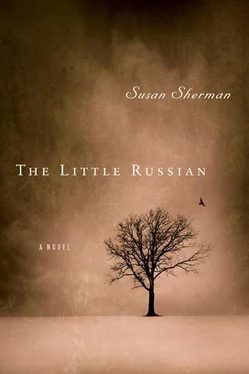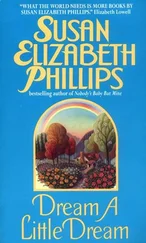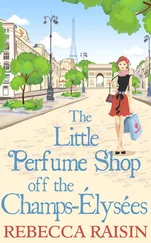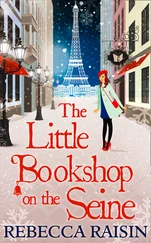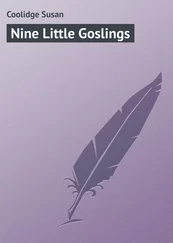She recognized the melamedkeh , the wife of the teacher at the heder, the moment she saw her kneading dough at a long table under an elm in front of the school. Berta remembered the thin little woman, her wispy hair escaping from the confines of her head scarf, her watery blue eyes red rimmed from lack of sleep. She was always frantic with her many businesses. She was either making medicinal bread to kill worms or cooking beans to sell to the students or tending to the chickens and eggs or anything else that would feed her husband and her blind child, whom she loved ferociously.
“Berta Lorkis, what a lady you have become,” she said, wiping her hands on her apron and coming over to the cart. She reached up and took Berta’s hand. Her hands were like weathered wood. “Learn anything in Moscow?”
“A few things.”
“Like what?”
“I read a lot of books.”
“Well, I’d expect so. What else have you done? I suppose you speak Russian?”
She nodded.
“Say something for me.”
“What shall I say?”
“I don’t know. Say, whatever you like. Say it’s a nice day .”
Berta said it’s a nice day in Russian to the delight of the melamedkeh . She clapped her hands and laughed. Her face lit up and for a moment there was color in her cheeks and the fine lacework of lines around her mouth were smoothed away.
THE TOWN SQUARE was dusty and barren, with a town pump in the middle surrounded by rocks to keep down the mud. Limestone buildings, blackened with age, stood on the perimeter of the square and housed the best Jewish businesses, the ones that dealt only in new merchandise. There was Charnofsky ’s tavern with a picture of a bear painted on the door, and Moesha, the tailor, stitching cross-legged on his cutting table so he could watch the passersby. Gershen’s bakery was still located on the corner, where the same dusty plaster wedding cake stood among dead flies in the window.
Chaim pulled the horse up to the front of the store, jumped off, and helped the women down. The Lorkis grocery was located on the northeast corner of the square. It had a fancy sign painted on the window in black letters edged in gold and out in front was a display of farm implements and barrels of tar and kerosene. Two dusty posters hung in the window: one showing a fashionable lady sipping Abrikosov Cocoa; the other, a Muscovite princess praising hygienic Volga soap.
A large woman with small eyes and wide cheeks mottled with a sprinkling of age spots leaned over the balcony where she had been beating a rug and shouted down to them. “Is that your daughter, Froy Lorkis?”
Rivke looked up and beamed.
As Berta watched her mother boast about her beautiful, educated daughter with her trunk full of Paris dresses, it occurred to her that she had missed her parents more than she cared to admit. It came as a complete surprise, especially since she hadn’t given them much thought during all those years in Moscow. In fact she had done her best to distance herself from them, from Mosny, from Little Russia and her childhood. She remembered telling Aleksandra Dmitrievna that they were dead and momentarily felt ashamed. It hadn’t been the first time she lied about her parents. And she knew that no matter how she felt at this moment, how tenderly she thought of them in the flush of homecoming, it wouldn’t be the last.
Berta heard her name and turned to see her sister, Lhaye, flying out the door of the grocery. “You’re here!” she exclaimed, throwing her arms around Berta’s shoulders.
Any stranger looking at these two would have known instantly that they were sisters. They had the same curly dark hair, which Berta wore piled on her head and Lhaye let fall in thick waves down her back. They were both small with broad, round faces and dark eyebrows over almond-shaped eyes that changed color from green to brown depending on what they wore. They had freckles on their hands and arms that Lhaye ignored and Berta tried to hide with powder, and a full lower lip that covered small white teeth. Berta held herself with an imperious detachment, a regal efficiency of motion. Lhaye, on the other hand, was still growing into her body, a little clumsy, always in a hurry, impatient to get where she was going but not quite sure how to get there.
“We’ve been waiting so long for you to come home. And you hardly ever wrote. Didn’t you get our letters? We were starved for news, starved! You have to tell me everything. Was it beautiful? Remember the night before you left? Remember how we imagined it? Was it like that?”
Berta remembered the day she arrived in Moscow. She had copied a dress off a label of stewed prunes and thought she was the height of fashion. Then she saw what the other young ladies were wearing and realized that the can must’ve been old. With trepidation she climbed the wide steps under the two-story portico and rang the bell. It was opened by a pretty maid in uniform not much older than she. She asked Berta what she wanted, using the ti form ordinarily reserved for informality, children, or subordinates. In that short, seemingly innocuous exchange, Berta knew she didn’t belong in Moscow. She felt a chill and went rigid with mortification. What Russian she knew instantly flew out of her head and left her stammering in Yiddish. On impulse she turned and ran down the steps and would’ve climbed back into the cab, had it not been receding up the drive.
“Come along, it’s just as you left it.” Lhaye took her sister’s hand and pulled her into the store. “We will be sharing our old room. You can have the right side of the bed just like before.”
“Wonderful,” Berta said without enthusiasm.
She followed her sister into the store, past shelves of dry goods and barrels of flour, barley, and pickles, and climbed the narrow stairs in the back up to the living quarters. The apartment was even gloomier than she had remembered it and stifling hot. The dust-streaked windows kept out most of the light and it smelled of woodsmoke, kerosene, and unwashed bodies. There were no decorations on the walls, not a painting or even a print, only the wedding photograph of Mameh and Tateh that had been hand colored in garish hues. Lhaye led the way down the narrow corridor that had once been painted green but was now an indeterminate color due to the soot and grime from the kitchen stove and the kerosene lamps. Their bedroom was at the far end of the corridor. It was small, with a tiny window that offered no relief from the heat. It was only big enough for a bed, a little armoire, and a straight-back chair that sat in the corner. Tateh had already brought up the trunk, which stood in the center of the room taking up most of the floor space.
“Look at these,” Berta said, opening her trunk.
Lhaye came over and looked at the dresses that had been carefully packed away, one on top of the other, each separated by tissue paper. She sucked in her breath, took out the beaded evening gown that was lying on top, and held it up, looking at herself in the armoire mirror. “It’s beautiful,” she whispered, as if she were in the presence of something truly miraculous. Berta had worn it to Madame Zherebtsova’s party. It was in honor of Monsieur Konshin’s horse, Avors, who had just won the Grand National. They had brought the champion in for a plate of apples and he had made a steaming mess on the ballroom floor. Valets appeared instantly and scooped up the mess into a sterling silver punch bowl.
Next Lhaye took out an ivory muslin Berta had worn to the Polia-kovs’ estate just that summer. She almost ruined it when she got her monthly and had to run up to the second-floor bathroom. She was too embarrassed to ask a maid for a rag, so she used several linen hand towels embossed with the Poliakov crest that she found hanging on a silver towel rack.
Читать дальше
